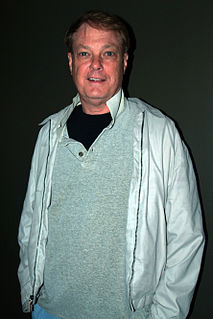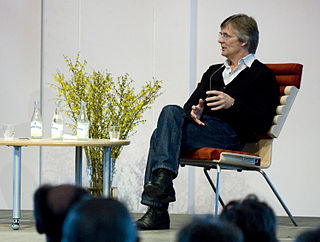A Quote by Duncan Jones
When I said that something was going to cost a certain amount of money, I actually knew what I was talking about. The biggest problem that we were having on the financing front was people with lots of money saying "you need more money to make this film [Moon]," and us saying "no this is the first feature film we want to do it at a budget where we sort of prove ourselves at the starting end of making feature films; we can do this for $5 million." That is where the convincing part between me and Stuart came, we had to convince people with money that we could do it for that budget.
Quote Topics
About
Actually
Amount
Between
Biggest
Biggest Problem
Budget
Came
Certain
Convince
Convincing
Cost
Could
End
Feature
Feature Film
Film
Films
Financing
First
Front
Going
Had
Having
Knew
Lots
Lots Of Money
Make
Making
Me
Million
Money
Moon
More
More Money
Need
Ourselves
Part
People
Problem
Prove
Said
Saying
Something
Sort
Starting
Talking
Us
Want
Were
Related Quotes
Movie is a near art form. It's showbiz and people want to make money. And generally people are financing things because they think it will make money whether it's a cable news show, a cable show, or a feature film, or whatever it is. So that's the part of it that drives it, I think, is really the dollar.
To walk in money through the night crowd, protected by money, lulled by money, dulled by money, the crowd itself a money, the breath money, no least single object anywhere that is not money. Money, money everywhere and still not enough! And then no money, or a little money, or less money, or more money but money always money. and if you have money, or you don't have money, it is the money that counts, and money makes money, but what makes money make money?
As soon as I finished film school I was thinking about, how do I get to feature films? It took about eight years, and I'm still working. Feature films was not the end goal. Feature films was one of the stages. Getting to the point of the Coen brothers or Tarantino, where you're writing your own material and have the budget to do it properly, that's the end goal, and I'm close to that.
Biggest problem? Well, I'd say it's been my biggest problem all my life. MONEY. It takes a lot of money to make these dreams come true. From the very start it was a problem. Getting the money to open Disneyland. About seventeen million it took. And we had everything mortgaged including my personal insurance.
People look at me in many ways. They've said, 'The guy has no regard for money.' That is not true. I have had regard for money. It depends on who's saying that. Some people worship money as something you've got to have piled up in a big pile somewhere. I've only thought about money in one way, and that is to do something with it. I don't think there's a thing I own that I will ever get the benefit of except through doing things with it. I don't even want the dividends from the stock in the studio, because the government's going to take it away. I'd rather have that in (the company) working.
Even after I had just done Twilight, which made $400 million at the worldwide box office, I could not get financing for three or four projects that I really loved and I thought people would love because they didn't fit some studio or investor's model of thinking, "This will definitely make money." It's a business and a film does potentially cost millions of dollars, and they have to think that they're going to get their money back somehow.
When you raise the budget, you make creative compromises. The higher the budget goes, the more cuts in your movie happen. When people talk about how movies are watered down, that's a direct reflection of money and budget. The less money you spend; the more risks you can take. That doesn't mean it will be successful, but at least you can try different stuff. The higher your budget is, the less you can do that.
When you're battling against the minds of the studios and the money that can go into promoting larger budget films, it's very hard for a very small-budget Australian film to get a look in. You can get critically acclaimed and go to various film festivals around the world, but that doesn't necessarily mean the majority of people are going to hear about it.
The amazing fact that one person can make his own film - I think animation is somewhat unique in that respect. I don't need to deal with lawyers. I don't need to deal with corporations. I don't need to deal with executives or agents or any of that. I can just sit at home and make a feature film. That's a wonderful experience. Each film I make gets more popular, more press and makes more money. So it's amazing that I've survived and actually prospered doing that sort of homegrown, cottage-industry filmmaking.




































